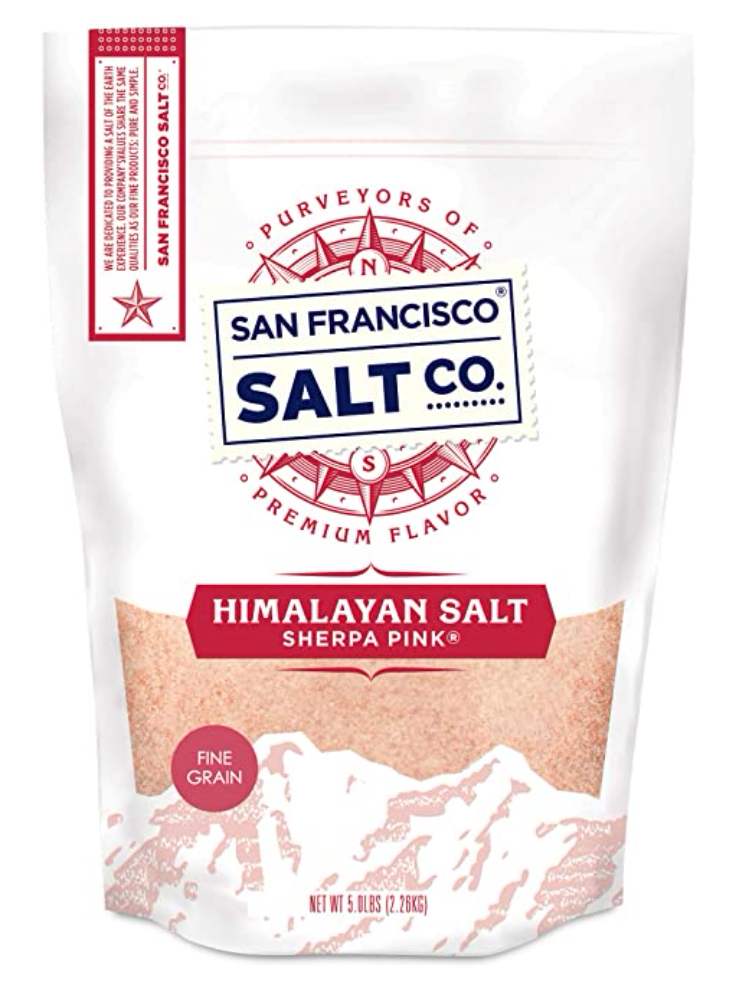Adding sea salt to your daily routine
- rebecca-preslar
- Feb 8, 2023
- 3 min read
At all our job sites, I see employees drinking several Gatorades and other sports drinks a day trying to “increase” electrolytes and reduce cramping. Sports drinks are designed to replenish sodium and potassium for athletes who do a moderate to high intensity workout of 60 minutes or longer each day. Unfortunately, sports energy drinks are also high in sugar and food dyes, and drinking more than 1 serving a day can increase the risk of diabetes and other health conditions. According to the Gatorade website, a 20-ounce serving of Gatorade contains 140 calories and 36 grams of carbohydrates, with 34 grams of carbohydrates coming straight from sugar. One serving size is 8 oz of Gatorade (the smallest bottle sold).

A healthier, and cheaper, alternative is to add a couple of pinches of sea salt to food and water during the day to help with hydration. Sea salt is a mineral-filled salt that not only keep employees hydrated, but also keeps them healthier.
(Please remember the daily limit of sodium should be capped at 2300 mg. The ideal daily sodium intake is 1500 mg of sodium. The serving size for sea salt is 1/4 teaspoon which is 500 mg of sodium. A pinch is anywhere between 1/8 – 1/16 teaspoon.)
So, what’s the difference between sea salt and table salt? Sea salt comes from ocean water or saltwater lakes, full of healthy minerals, and is made with little processing. Table salt, on the other hand, comes from underground salt and is heavily processed to remove healthy minerals.
Next time you’re at the store, pick up a high-quality sea salt and take it with you to work. You can add it to your water or food for added health benefits. Contrary to what most people think, sea salt is an inexpensive alternative with major health benefits and should be used instead of regular table salt.
Here are eight health benefits to adding a couple of pinches of sea salt to your food or water:
Hydration – Sea salt helps the body absorb water for optimal hydration, as well as helps the body stay hydrated for longer periods of time.
Reduces fluid retention – Sea salt is loaded with minerals such as potassium and sodium that help release retained water. Sprinkling sea salt on your food can help with digestion and reduce bloating (best not to add table salt to food or eat food high in preservatives).
High in minerals – Sea salt has 84 traces of minerals. Over the decades, the farming process has caused us to lose out on key minerals in our food. Adding a couple of pinches of sea salt to your food or water allows the body to absorb needed minerals for optimal health.
Electrolytes – Sea salt is high in Magnesium, Potassium, Calcium, and Sodium. These minerals are key for muscle, brain, and heart health. Adding sea salt and a squeeze of lemon is more helpful to increase electrolytes than popular sports drinks.
Prevents cramps – Minerals found in sea salt help to keep muscles relaxed. Our muscles start to tighten up and contract when we are low on these minerals, causing symptoms like cramping, muscle soreness, and restless leg syndrome. Magnesium in sea salt plays a big role in preventing cramps. Taking an Epson salt bath is another great way to recover from a strenuous day.
Improves digestion – Sea salt aides in creating hydrochloric acid, an acid produced in the stomach to help break down food. A lack of hydrochloric acid can create symptoms like bloating, heartburn, gas, and indigestion. Switching from table salt to sea salt will help improve your digestion.
Nourishes adrenal glands – Adrenal glands produce hormones that are vital for living. These include hormones that regulate our metabolism and blood pressure. Most often, our adrenals are over-stimulated and out of balance. Stressors from life, poor diets, and caffeine wreak havoc on our adrenals and can cause fatigue, high blood pressure, weight gain, muscle weakness, and moodiness. The potassium and sodium in sea salt helps to balance adrenal glands and prevent adrenal gland dysfunction.
Regulates Blood Pressure – The minerals in sea salt help to reduce inflammation and boost immunity, which helps regulate blood pressure. Inflammation caused by poor diet and high sugar foods leads to high blood pressure. Substituting table salt with high quality sea salt and increasing water intake can improve heart health and help prevent heart disease.




Comments